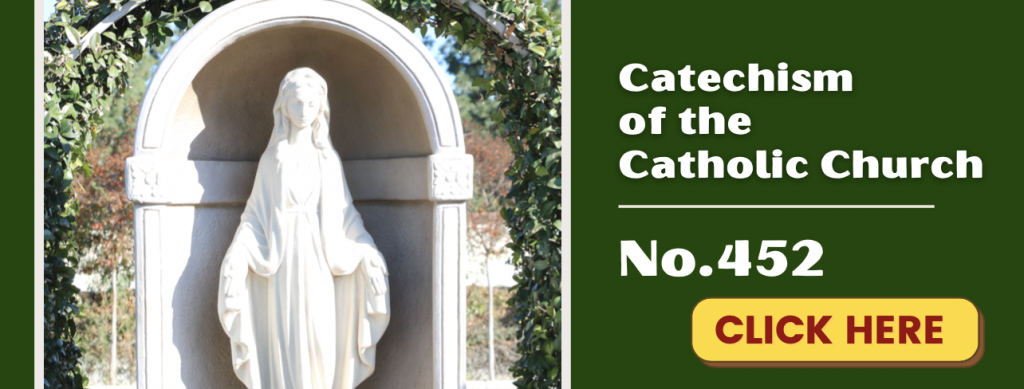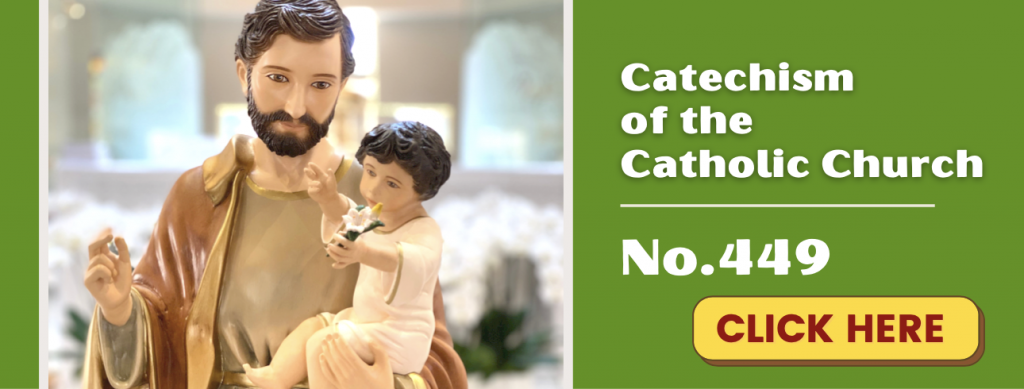Twenty-second Sunday in Ordinary Time



“For greater things you were born.” (Ven. Mother Luisita)
SUNDAY, August 29th Mk. 7: 1-8, 14-15, 21-23 “From within, out of the heart of man, come evil thoughts, sexual immorality, theft, murder, adultery, coveting, wickedness, deceit, sensuality, envy, slander, pride, foolishness. All these evil things come from within, and they defile a person.”
- This is not an easy meditation, but a necessary one. Let us ask Our Blessed Mother to help us pray over this meditation with her merciful and loving gaze upon us, and beg her for the grace to attain true purity of heart, mind, body and soul!
- Let us draw courage from No. 40 in Faustina’s Diary: Divine Mercy in my Soul:
“When we had left our kneelers and had started to recite the formula for the vows, Jesus appeared suddenly at my side clad in a white garment with a golden girdle around His waist, and He said to me, I give you eternal love that your purity may be untarnished and as a sign that you will never be subject to temptations against purity. Jesus took off His golden cincture and tied it around my waist. Since then I have never experienced any attacks against this virtue, either in my heart or in my mind.
I later understood that this was one of the greatest graces which the Most Holy Virgin Mary had obtained for me, as for many years I had been asking this grace of Her. Since that time I have experienced an increasing devotion to the Mother of God. She has taught me how to love God interiorly and also how to carry out His holy will in all things, O Mary, You are joy, because through You God descended to earth [and] into my heart.”
FIVE OBSTACLES TO ATTAINING PURITY OF HEART by Fr. Ed Broom, OMV
For us to contemplate the beauty of God in heaven and even starting on earth, we must make a concerted effort to attain the most challenging virtue of Purity of Heart. Jesus taught this message with utmost clarity in the Sermon on the Mount, starting with the Beatitude: “Blessed are the pure of heart, for they will see God.” (Mt. 5:8)
In this brief article we would like to present the many dangers that militate virulently against the acquisition of this most precious virtue, but also this most demanding virtue of chastity, purity of heart, so that one day we will all be able to contemplate the Face of God, what Saint Thomas Aquinas calls “The Beatific Vision of God”, with our eyes unveiled to contemplate the Face of the Father, the Son, and the Holy Spirit. Indeed, if we are ignorant of the perils, dangers, pitfalls, and temptations that surround us then it will be much more difficult to reach our ultimate goal.
1. Our Three Major Obstacles
Born into the human condition, all of us (with the exception of Jesus and Mary) have to struggle against the three major obstacles to our spiritual life, our sanctification, and our eternal salvation:
1. the devil,
2. the flesh,
3. and the world.
God allows the devil to present to our imagination impure images. It is incumbent upon us to repudiate and reject them immediately! The world strives to present to us as glamorous immodesty, impurity, and sexual license as totally normal and acceptable.
As a result of Original Sin that we all inherited from our first parents, Adam and Eve, we are conceived and born with concupiscence, a term which simply means that we have innate tendencies toward sin. Among these is that of the Capital Sin of Lust which can be defined concisely as: “A disordered desire for sexual pleasure.”
We all must contend with these enemies: the devil, the flesh, and the world! Good News: with God’s grace all is possible! As Saint Paul reminds us, in Christ we are all conquerors. (Rom. 8:37) Jesus said: “I have overcome the world.” (Jn. 16:33)
2. Immodesty
Our Lady of Fatima stated that most souls are lost for all eternity to the fires of hell due to the breaking of the 6th and 9th Commandments—both refer to the virtue of purity, to the importance of living out chastity. Our Lady revealed to Jacinta in a later message that many marriages are not good.
Also, Our Lady stated that many immodest fashions will enter the world that will gravely offend God. The Catechism of the Catholic Church states that modesty is the guardian of the virtue of chastity. Therefore, immodesty in all forms is the gateway by which many sins of impurity are unfortunately committed.
3. Phones, Social Media, & the Internet
All of these can be used for the honor and glory of God—for preaching the Good News of the Gospel, as efficacious tools for evangelization, as the means to convert and save souls. This is all very true! However, social media is a two-edged sword; it can be used for immense good but it can also be used for incalculable evil.
Saint Ignatius teaches us in Principle and Foundation that we are called to use creation for the honor and glory of God and not as a means of our eternal perdition and destruction.
4. Pornography
Of course, an obvious sequel to the topic of the internet, telephone, and social media is the all-pervasive presence and use of pornography. Many have termed pornography the modern drug. By far it is the most pervasive, influential, and dominant vice and addiction, especially for men, although it is also growing in use among women. Its influence is devastating to say the least.
What then are the common effects of porn use?
a) Persons Become Objects
The person is no longer seen in their innate dignity and destiny, but rather as an object to be viewed, used, and discarded. Pope Francis mentions the concept of the “Throw-away society”.
b) Polluted Mind
The mind, which should be the seat and center for absorbing truth, is eventually turned into a cesspool of moral sewage. Instead of looking up to heaven, the individual focuses their eyes and attention on the lowly, earthly, sordid, and squalid which soon inundates their whole being.
c) Escalation
Sad to say, it often happens with respect to porn that the more it is viewed, the more one desires to view it and in more unhealthy doses.
d) Desensitization
The porn-viewer becomes more and more desensitized to what is pure, noble, good, and worthy of praise. Their mind, heart, and emotions become calloused, hardened.
e) Addiction
Seen as the modern drug, porn can easily form a quick addiction, and among younger and younger people. Studies have shown that it can be more powerful than addiction to certain drugs.
f) Acting upon Images
Still more, addiction to pornography can easily lead to actual sins against purity: masturbation, fornication, prostitution, adultery, incest, homosexual acts, etc. These actions can also become highly addictive.
g) Breakup of Families
On a very serious note, many families have been rent asunder due to the use of porn. Jesus raises the bar with respect to the importance of holiness in the realm of purity in His teaching in the Sermon on the Mount:
“You have heard that it was said, you shall not commit adultery. But I say to you, everyone who looks at a woman with lust has already committed adultery with her in his heart.” (Mt. 5:27-28)
What Jesus is really saying is that a married man who is purposely viewing pornography is really committing an act of unfaithfulness, an act of mental and emotional adultery against his wife. This can often result in ripping marriages apart while perpetrating and causing irreparable damage to the innocent children at stake.
h) Hatred for God
Saint Thomas Aquinas, the Angelic Doctor, stated that it often happens that those who have given themselves totally to the sin of lust and impurity end up by hating God. Could it be that many young people today have rejected the Church, the Sacraments, and a life of prayer due to slavery and addiction to some sexual sin with pornography as its motor-force?
i) Sadness
How often has it happened that parents look at a photo of their child when they made their First Communion and the child was radiating innocence, purity, and joy in their whole being! Now that the years have passed and their innocence has been destroyed due to exposure to and usage of porn, that joy has disappeared and a glum, gloomy, sadness fills their countenance. The culprit? Pornography!
j) Danger of Eternal Loss
Of most grave and serious import is that once a person has totally abandoned himself or herself to the vice of porn and impurity, if they die in this state with no signs of repentance, there is the real possibility of losing the Presence and Vision of God for all eternity. Our Lady of Fatima warned the world 100 years ago that sins of the flesh are the primary reason for the loss of souls in eternity!
5. The Hook-Up Culture and Premature Courtships
It must be said, in closing, that the modern society that promotes early, premature, and immature courtships easily militates against the virtue of purity. The Bible teaches that there is a time for everything underneath the sun. This includes a time and place for persons to establish a courtship that leads to marriage. It also means that the time and proper use of sexuality takes place only in the context of the Sacrament of Holy Matrimony.
Sad to say, the whole idea of living together, trial marriage, cohabitation, call it whatever you want, is really a serious epidemic that is pervading the whole society. Sexuality has its proper place only between a man and woman who are married Sacramentally in the Church, in which both give themselves to each other as a gift of love and with the openness to life, that is to say, openness to procreation, to having children as a true gift from God.
Conclusion
In conclusion, these are some of the major obstacles or road-blocks that prevent us from living out to the full this very demanding but very necessary virtue of purity. By our awareness and cognizance of these possible traps and pitfalls, as valiant soldiers of Jesus and Mary, we can be vigilant, prayerful, and energetic, and eventually win the battle of living out the Beatitude: “Blessed are the pure of heart, for they will see God.” (Mt. 5:8) Then our reward will be to contemplate the Beatific Vision of the Face of God forever in heaven. May the pure and Immaculate Heart of Mary be our sure refuge in time and forever!









